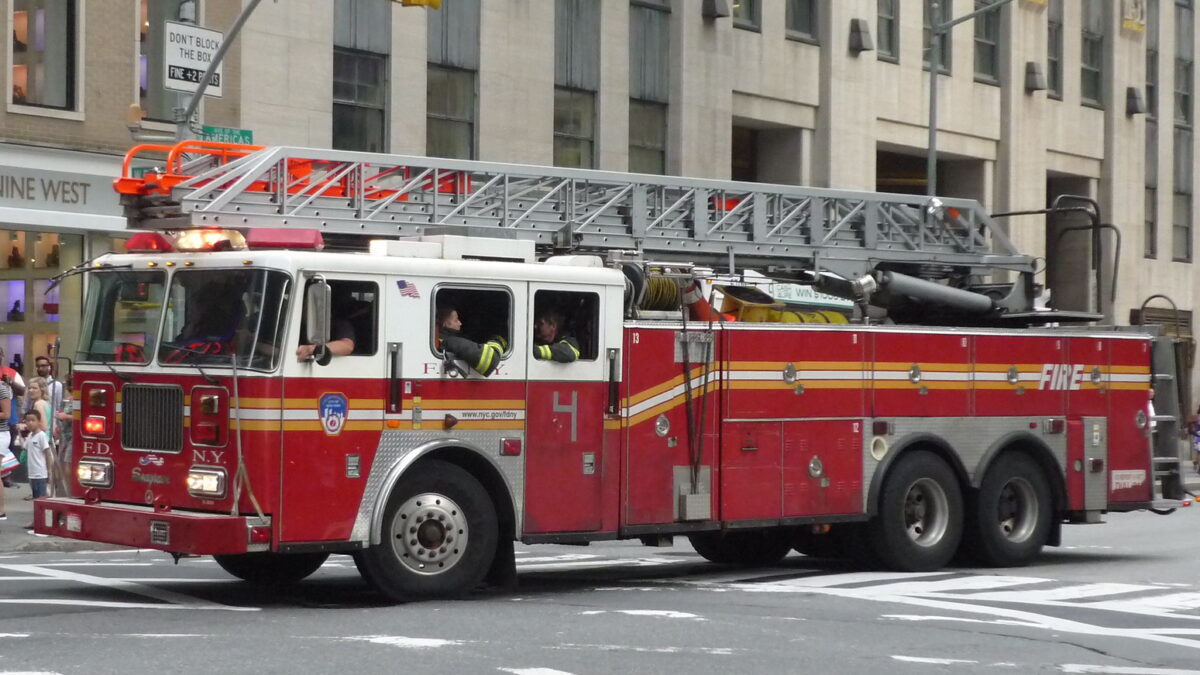
On the early morning of Aug. 12 a homeless man grabbed Paneez Kosarian outside the door of her San Francisco condo. She quickly realized her attacker was deranged. According to SF Gate: “He was trying to tell me he was trying to save my life,” Kosarian told KRON4. “All the people I see are robots and he is the only human being on earth and he’s trying to save me. He asked me to open the door so that he could go and kill our concierge, or front desk lady, and earn my trust. I realized this man is very mentally unstable.”
With the concierge, Kosarian fought off the attacker, a 25-year-old man named Austin James Vincent. But when he appeared in court on the charges of false imprisonment, attempted robbery, and misdemeanor battery, Judge Christine Van Aken let him go free pending trial without bail or monitoring.
Kosarian used her social media platform to draw attention to the assault, pressing Van Aken to reverse her decision and order an ankle monitor for the suspect. After police released Vincent’s mugshot, other women identified him as an attempted attacker elsewhere, including at least one who said the transient was wielding a knife.
Women Are Victims of the ‘Homelessness Crisis’
The incident brings into light the vulnerabilities of ordinary women living through what we in the San Francisco Bay Area politely refer to as the “homelessness crisis.” It’s a great irony that the city that prides itself on feminist traditions, the city of leading Democrats Nancy Pelosi and Dianne Feinstein and currently led by the feminist Mayor London Breed, turns a blind eye to the plight of women living among dangerous individuals.
Local law enforcement is incapacitated and mental health services are inadequate. It seems like MeToo and the feminist movement should have something to say about all this, yet they are mute.
I asked fellow San Francisco residents about their daily lives and about female vulnerability, and I got a range of answers. Martha feels like the crisis on the streets affects her every day. She lives in the Tenderloin, rides public transportation, and once had her wallet stolen. But she’s mentally tough.
“I don’t feel that vulnerable because I don’t allow myself to feel that way,” she said. “I believe in presenting oneself as strong and not to be messed with, and it works for me. And I’m not young — I’m 60 — but I’m not weak either.”
Jenny Shao, a native San Franciscan, said, “I don’t think it’s strictly a women’s issue. It’s in large part a drug issue. That drug issue affects people of all walks of life.”
One of my respondents is a long-term San Francisco resident and a mother who champions women’s rights in the consulting industry. She wished to remain anonymous because of the Democratic Socialists of America’s previous doxxing attempts related to her activism on behalf of the residents of her junkie-affected SoMa neighborhood. She said:
As a woman, I feel very vulnerable, helpless, and really scared. A prisoner in my home, afraid to walk outside after dark. Hearing my neighbors discussing self-defense, means of protection, and private security patrol is surreal.
When I pressed her on whether she considers this a women’s rights issue, she said she does.
Another mom, and a 5th-generation San Franciscan, gave her perspective: “Our child asks us why we have to live with and be afraid everyday of stranger dangers. … It’s becoming a kind of hell. We are beyond defeated. We are all on our own in SF. No one’s coming to help the good people.”
Let me assure you that the talk about being confined to one’s house, terrified to leave, is not unusual and not histrionics. Kosarian mentioned it too. A flasher cornered me when I was 12, and I had to confront the same fears. One shouldn’t need that “lived experience” to understand what a female victim is going through.
Mental Illness, Drug Addiction Are Out of Control
I don’t visit the city that often these days, and I’ve been avoiding BART, the public transportation system that connects downtown San Francisco to East Bay suburbs, since it became notorious for sheltering drug users. My suburb has long been taking in internal refugee families from San Francisco. I met a mother, for instance, who complained that when she took her kids to the park, she had to sift through the sand in the sandbox to make sure it was free of syringes.
Homeless advocates argue, aggressively, that the “unhoused” are merely the victims of circumstance. Yet the prevalence of mental illness and drug addiction among homeless populations is hard to deny. Today, amphetamines and methamphetamines are the most common drugs in San Francisco, and half of psychiatric emergencies are caused by these violence-inducing substances. Meanwhile, 80 percent of calls to the San Francisco Police Department are mental health-related.
The city has been looking for a solution to this mental health crisis since the 1980s and has came up with nothing. Elected officials are largely disinterested. Psychiatric hospitals are unable to hold patients considered a danger to self and others for longer than 72 hours. The San Francisco Police Department can arrest suspects, but the local judicial branch is notoriously reluctant to prosecute them.
For instance, according to SFPD 2018 statistics, less than 5 percent of those apprehended with hard drugs for sale ever serve time in the county jail. The charges either are never brought up, are dismissed, or result in probation. The drug epidemic fuels much of San Francisco’s lawlessness.
Why Aren’t These Dangers a Feminist Rallying Point?
It’s a shame that it’s necessary to point out that this crisis affects women more significantly than it affects men. Our relatively small stature and lower muscle tone put us at a disadvantage in a fight. A gun is a great equalizer, but it’s nearly impossible to get one legally in San Francisco.
Criminals, on the other hand, don’t seem to have trouble getting a hold of them. Men walking down the street in a popular shopping area and firing a gun at random are an increasingly typical cite.
A woman’s involvement in child-rearing puts her in a precarious position on streets taken over by the drug trade. Women are out and about all day, pushing strollers down streets blocked by encampments and walking kiddos to school past dealers selling dope.
Mothers are the first line of defense for the children in this Wild West redo. Can women reasonably be expected to provide this defense, and why is our society so dismissive of violent strangers posing danger to women and children?
Contemporary feminism champions strong women with a cult-like admiration. Think of the female superhero movies, video games where the female avatars hold their own against the most muscular of men, and the princesses who seemingly have no need of knights on white horses. And I get it: Don’t be a victim, take martial arts classes, work out, be alert — all good rules by which to live.
Women around here are no shrinking violets — Kosarian, for instance, fought her way to safety. But Hollywood fantasy and trendy ideology aside, men are still stronger than women, and, in any event, the streets of SoMa should not be a test for the combat readiness of a breastfeeding mom.
If the mainstream women’s movement willingly adopted the causes of date rape and catcalls, surely violent assault by a stranger can be somewhere on its radar. If feminists don’t leave a voluntarily inebriated coed to fend for herself, surely they will rally on behalf of a 5-foot-tall grandma helping her daughters with grandchildren, or an engineer on her way to the office.
While some feminists avoid this conversation, saying, “But think about the homeless women!” — and it’s true that homeless women are doubly victimized — that doesn’t justify turning other women’s lives into hell. And it should justify better mental health solutions.
We Must Start Talking Honestly About Drugs and Violence
Yet it feels like a half-century ago, American women lost the intersectional lottery, and now all compassion goes to the homeless. The woman who has to navigate her way through a dangerous neighborhood is considered privileged.
Of course, not all homeless people are violent, but it’s always a good practice to avoid situations that feel wrong. For the women of SoMa, these situations are unavoidable. Particularly against the backdrop of crystal meth popularity among the street dwellers, we have to start talking honestly about violence.
In no way is this a racist conversation, as it is sometimes inaccurately characterized. By the looks of it, the great majority of the homeless in the city are white, but most of the women residents are not. San Francisco is a majority-minority city, after all.
Let me throw this question at you: Does the condition of San Francisco streets constitute a barrier for women in tech? Many entry-level techies live in SoMa condos, and several flagship companies, such as Twitter, are headquartered in the Mid-Market area — two of the most affected neighborhoods.
Techies are notoriously reluctant to challenge the prevailing culture of wokeness. Yet in December 2018, Spotify moved its San Francisco office from Mid-Market to a somewhat safer downtown area after the company’s female employees were slapped on the way to work. Golden Gate City is not what one would call a female-friendly environment. At the time feminists are actively looking for possible microaggressions that may hinder women’s careers, developing PTSD from getting to work seems pretty macro.
Feminists like to talk about all sorts of things women have a “right” to: paid maternity leave, free contraception, universal pre-K. Surely, they can imagine safe streets as something women are entitled to. We need to stop thinking of women as superheroes capable of fighting off much stronger attackers just like we need to stop thinking of the “homelessness crisis” as something unrelated to mental health and drug addiction. Ordinary women living in high-crime, drug-ridden neighborhoods are worthy of protection.









